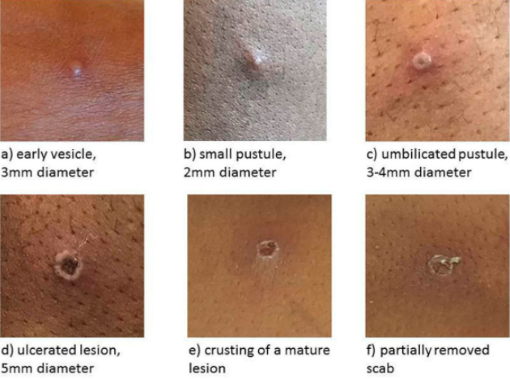The Health Protection Surveillance Centre (HPSC) has said there is a very low chance of monkeypox spreading in communities.
However there is a concern in Europe about the increased number of cases of the disease across the continent.
Monkeypox is a rare disease that is caused by infection with monkeypox virus. It occurs primarily in remote parts of Central and West Africa. Most cases of monkeypox occur when people have very close contact with infected animals or from eating infected bushmeat. Infection can be spread from person-to-person through contact with bodily fluids and skin lesions of a monkeypox case.
Signs/symptoms of concern include headache, fever, chills, sore throat, malaise, fatigue, rash, and swollen glands.
“Monkeypox is not very infectious – it takes close physical contact to spread between people. Contact with close family members or sexual contact poses the biggest risks of person-to-person spread,” said a statement from the HPSC.
The European Centre for Disease Prevention and Control is warning countries to remain vigilant, ensure that contact tracing and adequate diagnostics capacity is in place, and ensure that the necessary vaccines, antivirals and personal protective equipment are available for health professionals.
“Most of the current cases have presented with mild disease symptoms, and for the broader population, the likelihood of spread is very low,” said Andrea Ammon, ECDC Director. “However, the likelihood of further spread of the virus through close contact, for example during sexual activities among persons with multiple sexual partners, is considered to be high.”
Monkeypox infection is usually a self-limiting illness and most people recover within weeks, although severe illness can occur in people with very weak immune systems, and in very small babies.
“Severe illness and death outside Africa are extremely unlikely,” said the HPSC.








